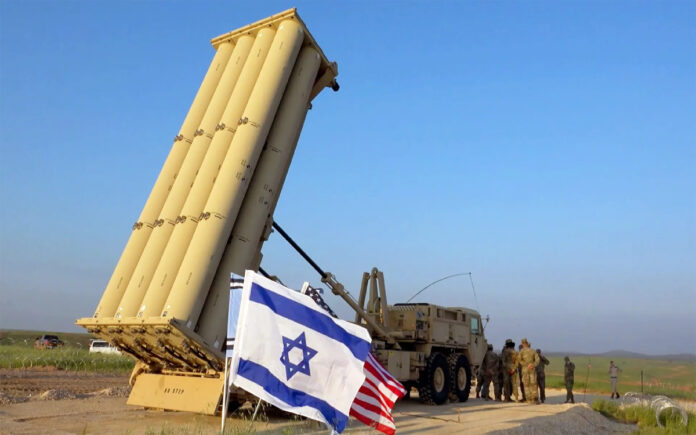Washington: The United States has announced plans to send a Terminal High Altitude Area Defense (THAAD) missile defense system to Israel, along with the necessary troops to operate it. Pentagon spokesperson Maj. Gen. Pat Ryder confirmed that the decision, authorized by Defense Secretary Lloyd Austin under President Joe Biden’s directive, aims to enhance Israel’s air defense capabilities following Iran’s ballistic missile attacks earlier this year in April and October.
The deployment of the THAAD system could further heighten tensions in the Middle East, despite ongoing diplomatic efforts to prevent a larger-scale conflict. Iran issued a stern warning to the U.S. through a social media post linked to Iranian Foreign Minister Abbas Araghchi, urging Washington to keep American military forces out of Israel.
Clashes between Israeli forces and Hezbollah fighters from Lebanon have escalated since October 8, 2023, when Hezbollah began launching rocket strikes into Israel in solidarity with Hamas. In response, Israel initiated a ground invasion into Lebanon. The Israeli military is believed to be preparing for potential retaliatory actions after Iran’s missile strike on Israel on October 1, 2023, which saw around 180 missiles fired into Israeli territory.
President Biden, speaking briefly with reporters before leaving Florida on Sunday, confirmed his approval of the THAAD deployment, stating it was intended “to defend Israel.” He made the remarks at MacDill Air Force Base in Tampa, after visiting areas affected by Hurricane Milton and meeting with local residents and officials.
Maj. Gen. Ryder emphasized that the deployment “underscores the United States’ ironclad commitment to defending Israel and protecting American personnel in the region from further Iranian missile attacks.”
Details regarding the origin of the THAAD system and its arrival timeline remain undisclosed. Israeli military spokesperson Lt. Col. Nadav Shoshani expressed gratitude for U.S. support but refrained from providing any additional information.
Also Read | Ukraine’s Zelensky Accuses North Korea of Backing Russia with Troops, Calls for Long-Range Aid
This move follows the U.S.’s prior deployment of Patriot missile defense systems and a THAAD battery to the Middle East in response to previous threats. Notably, the U.S. sent a THAAD system to Israel in 2019 for joint training exercises.
While the U.S. maintains a regular presence of forces in Israel, viewed as a vital regional ally, the addition of THAAD will further enhance Israel’s existing layered air defense infrastructure. This includes systems capable of intercepting threats across various ranges, including the newly decommissioned Patriot systems.
Also Read | Korean Peninsula on Edge: North Korea to Destroy Inter-Korean Roads Following Drone Incidents
A Congressional Research Service report from April revealed that the U.S. Army operates seven THAAD batteries, each comprising six truck-mounted launchers, 48 interceptors, and associated radio and radar equipment, requiring a team of 95 soldiers for operation. THAAD is designed to engage targets at ranges between 150 and 200 kilometers and is primarily used to counter ballistic missile threats. It complements the Patriot system but offers defense over a broader area.
An eighth THAAD system has been ordered and is expected to be operational next year, further expanding the U.S. military’s missile defense capabilities.



